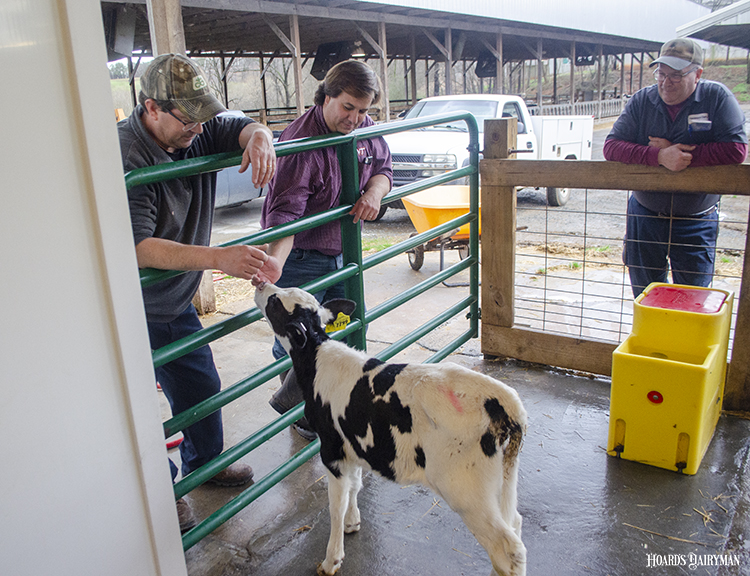
When we are close to something, it can be hard to see it for what it really is — successes and flaws alike — and dairy farmers are even closer to their farms than many other business owners. Sometimes the daily work can obscure the opportunities right in front of us. That’s why some farms are making more use of outside consultants as part of their business team.
During the Pennsylvania Dairy Summit, three farmers who have worked with consultants shared their experiences and advice for doing so. Each was facing a slightly different scenario when they enlisted the outside help, but the common denominator was seeking out additional perspective.
Kate Kulp described that her family’s farm started using a consultant when she and her brother were ready to begin transitioning into farm ownership. They wanted to see what else they could do to improve the operation, and so far, they have seen benefits from the changes their consultant has helped them implement, such as adjusting their footbath and hoof trimming schedules. “We see great value in it,” Kulp shared.
When Mark Moseman returned to the farm after college, expanding the business was the next step for the family. They used consultants to help site the location, and the farm has since kept up a “profit team” for the last 20 years. Moseman explained that they use that group as a tool to help make decisions and decide where to spend their capital.
Dale Brown explained that their farm also used consultants to help plan their expansion, but they had been using business consultants for decades. Eventually, they even hired one of them as part of their executive team. Those people helped the business partners gain some direction, he described.
Their consultants have been worth the investment, the farmers agreed. That’s because they provide perspective that the farms themselves often lack. Kulp explained that the main criteria they looked for when choosing who to work with was experience with multiple farms. When the consultant can answer their questions about certain practices with results from other farms, it helps them decide if it is the right tool for them and provide another viewpoint.
An outside look at the business can also highlight what is really a problem and what might just be something that needs to be adjusted further down the road. “It helps us as a family prioritize where our time is best spent,” said Moseman about the suggestions and ideas they receive from their consultant.
How do you pick the right consultant to partner with? Brown’s advice was to make sure you are choosing someone who will help you develop solutions, not just identify the problems. Similarly, Kulp said a healthy relationship will rely on discussing why they want to make a change and determining if it really fits your farm’s needs and goals.
“Find a consultant that’s willing to learn your business,” she added. This will help decision-making processes go smoother and lead to better results.
At the same time, Moseman recommended a consultant that will challenge you to think about what your goals are and what the future looks like. “If a consultant comes in and tells you what you want to hear, they’re not doing a good job,” he said. When the family has an idea they want to implement, Moseman appreciates a consultant who can play devil’s advocate because it challenges them to truly think about why they want to do it.
At the end of the day, the farm owners are the ones making the decisions for their business. Accepting advice is not always easy, but seeking out a different perspective will help you make a decision that is more informed.








